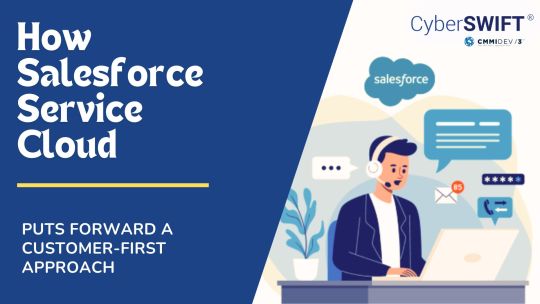#cloud companies in india
Explore tagged Tumblr posts
Text
Cyber Security Monitoring and Management: Best Practices

In today's digital age, cyber security is an essential aspect of safeguarding businesses, government institutions, and individuals from cyber threats. Effective monitoring and management of cyber security measures can significantly reduce the risk of data breaches, financial losses, and reputational damage. This article outlines the best practices for cyber security monitoring and management, ensuring a secure and resilient digital environment , specifically for cloud computing companies in India.
1. Implement a Strong Security Policy
A comprehensive security policy is the foundation of any robust cyber security program. Develop clear guidelines and procedures for employees and partners, covering topics such as password policies, data protection, and incident response. Regularly review and update the security policy to accommodate evolving threats and business requirements.
2. Establish a Security Operations Center (SOC)
A Security Operations Center (SOC) is a centralized unit responsible for monitoring, detecting, and responding to cyber threats. An SOC should have a team of skilled security analysts and cutting-edge tools to identify and mitigate risks in real-time. Investing in an SOC can significantly enhance an organization's ability to proactively respond to threats.
3. Adopt a Risk-Based Approach
Identify and prioritize the most critical assets and vulnerabilities within your organization, focusing on protecting high-value data and systems. Conduct regular risk assessments to identify potential weaknesses and implement appropriate security measures to mitigate them.
4. Implement Multi-Layered Security
A multi-layered security approach combines various tools and technologies to protect your organization from different types of threats, like we did in Delta IT Network. This approach may include firewalls, intrusion detection systems, encryption, and access controls. Employing multiple layers of security makes it more difficult for an attacker to breach your defenses.
5. Regularly Update Software and Hardware
Outdated software and hardware are prime targets for cyber criminals. Regularly update your systems and applications with the latest security patches and upgrades to protect against known vulnerabilities. Establish a patch management program to streamline the process and ensure timely updates.
6. Perform Regular Security Audits
Conduct regular security audits to evaluate the effectiveness of your cyber security measures. An audit should include vulnerability scanning, penetration testing, and security controls assessments. These assessments can identify weaknesses in your security posture and help you address them before they are exploited.
7. Develop an Incident Response Plan
An incident response plan provides a structured approach for dealing with cyber security incidents. It outlines the roles and responsibilities of key personnel and provides guidelines for detecting, containing, and recovering from a security breach. Regularly test and update the incident response plan to ensure that your organization is prepared for any eventuality.
8. Train and Educate Employees on Cyber Security
Employees are often the weakest link in an organization's security chain. Provide regular cyber security training and awareness programs to educate employees about threats, vulnerabilities, and best practices. This will help them recognize and respond to potential risks and reinforce the importance of following security procedures.
9. Monitor and Manage Third-Party Risks
Third-party service providers and vendors can introduce vulnerabilities into your organization. Establish a vendor risk management program to assess and monitor the security posture of third parties, ensuring they adhere to your organization's security standards.
10. Continuous Improvement
Cyber threats are constantly evolving, and so should your organization's cyber security practices. Stay informed about the latest trends and developments in the cyber security landscape. Implement a continuous improvement process to regularly review and enhance your security measures, adapting to new threats and technologies.
Conclusion
In a world of ever-evolving cyber threats, effective cyber security monitoring and management are crucial for organizations of all sizes. By implementing these best practices, you can protect your valuable assets, minimize the risk of data breaches, and maintain a secure and resilient digital environment. Stay proactive and vigilant in your.
For any clarifications or queries, please feel free to contact us at:
Mobile: +91-8826196688 or 9910248322
Email ID: [email protected]
Visit Website: www.deltaitnetwork.com
#cloud computing companies in india#cloud companies in india#cloud computing service providers in india#cloud solutions provider in india
0 notes
Text
Top 10 ERP software provider in India | shantitechnology
STERP (shantitechnology) is a leading ERP solution provider in Pune, delivering industry-focused ERP for manufacturing companies in Pune. As one of the top 10 ERP software providers in India, we specialize in streamlining operations with cutting-edge manufacturing ERP software in Pune. Trusted among the best ERP software providers in Pune, we empower businesses with seamless automation and efficiency.
Choose STERP – one of the most reliable ERP software companies in Pune for unmatched enterprise solutions!
#ERP for manufacturing company in Pune#Manufacturing ERP software in Pune#ERP solution providers in Pune#India#ERP software providers in Pune#Pune#Mumbai#Maharashtra#ERP software companies in Pune#Top 10 ERP software provider in India#ERP solution#ERP software#Cloud ERP#Business Solution#MSME#SME#business analyst#business analysis#ERP software provider
5 notes
·
View notes
Text
Zebyte Cloud, a premium website hosting company in India, offers dedicated web server hosting, cloud service provider in India, cloud server solutions, cloud server platform, cloud solutions, cloud management, email hosting services, data center services, managed IT services in India with 24 hours technical support
#Best Web Hosting Company#cloud service provider in India#premium website hosting company in India#dedicated web server hosting#cloud server solutions#cloud server platform#cloud solutions#cloud management#email hosting services#data center services#managed IT services in India#Cloud services#domain hosting package#web hosting services#hosting plans in India#Buy web hosting plans#buying web hosting plans#buy web hosting#web hosting services in India#flexible hosting plans#domain registration#web hosting plan#Cloud’s hosting plans in India#website hosting plans#web hosting service provider#Web Hosting India provider#Cloud Web Hosting Services#Cloud Web Domain Services
4 notes
·
View notes
Text
Future Horizons of Scan to BIM Technology

Scan to BIM is important for reconstruction and renovation projects as it eases the complex process and eliminates the manual methods of measurements. However, the rapid growth in tech brightens the future with more accuracy and efficiency in the working approach. Get a better understanding of the future horizon of scan to BIM technology.
#bim services#bim modeling services#scan to bim services#bim services india#point cloud to bim#point cloud to bim services#bim drafting services#bim outsourcing services#outsource bim services#bim architectural services#laser scan to bim#point cloud modeling services#scan to bim modeling services#laser scan to bim services#scan to bim modeling#point cloud scan to bim#scan to bim company
2 notes
·
View notes
Text

Call it what you will, but ya'll know it's just a chem trail . . .
#hand-forged ales#alesmith brewing company#cloud stream#hazy india pale ale#san diego#california#beer#hazy ipa#chem trails
3 notes
·
View notes
Text
Salesforce Implementation Partners: Missing Link in the Picture?

Salesforce is a powerful platform with amazing features and endless capabilities. Businesses, regardless of the industry verticals, look forward to implementing Salesforce to strengthen their relationship with customers. Though it might sound simple and easy, starting an implementation without diligent preparation and planning often results in poor outcomes, which can require time-consuming and costly rework—this is where Salesforce implementation partners come to your rescue.
This blog answers some of the most common questions that people often have about working with a Salesforce implementation partner. In addition, it also tells you how to make the most of this strategic collaboration.
In response to changes in customer behaviors, businesses of varying sizes and scopes are accelerating their digital transformation initiatives. A majority of them are interested in employing integrated, access-from-anywhere kind of solutions such as a Customer Relationship Management (CRM) software/platform— just like the ones offered by Salesforce.
Here is what the statistics have to say about one of the fastest-growing categories of enterprise software: the global spending on Salesforce is projected to be around 675 billion U.S. dollars in the current year. In the previous year, Salesforce took approximately 24% market share of the global CRM applications market.

Going forward, exploring a Salesforce CRM solution is one aspect; knowing what applications, products, as well as configurations best suit your business-specific needs is totally another matter. Perhaps, this is why a majority of Salesforce customers resort to accredited experts to ease their entry into the world of Salesforce. These dedicated experts are your implementation partners. There is a wide network of Salesforce implementation partners that assist businesses to achieve their CRM goals quickly and effectively.
What is an Implementation Partner?
To put it in simple words, an implementation partner is a company that has been approved by Salesforce after reviewing it to implement Salesforce CRM solutions on its behalf where each implementation partner specializes in some specific areas, applications, or industries. This implies that there is a partner that caters to every business need, challenge, product, industry vertical, region, etc., and assists us along the entire Salesforce journey.
Why do Businesses Need an Implementation Partner?
Salesforce CRM solutions are known to cover the entire spectrum of business operations, which include marketing, sales, service, as well as sustainability. Each of its products can be bolstered via platform-to-platform integrations and add-on applications.
In other words, the entire Salesforce ecosystem offers endless capabilities—where the main challenge is to select the right product with the integrations and configurations that best fit your business-specific needs. Consider the case in point, a big organization might already be working with multiple technological solutions. They want to figure out how a Salesforce product, for example, Marketing Cloud, can be integrated with their existing workflows without causing friction, and are looking for assistance for the same.
Take another case in point, a smaller company might be scaling upwards quickly. They also know that continuing to work with spreadsheets would not support their growth. Amidst this, they realize that they must automate their processes—or it is time to develop more streamlined and personalized customer experiences.
Implementing a CRM solution for the first time can be daunting for a majority of companies. It is a challenging task for internal teams or employees with no experience in Salesforce to take into consideration all the variables as well as implement a new and highly configurable CRM solution. Besides, hiring a full-time employee to look after the CRM implementation process can also be a costly avenue.
These were some of the situation-specific reasons that a significant chunk of Salesforce customers resort to partner applications and experts.
When is the Right Time to Engage with Implementation Companies?
As early as possible would be apt if it were to be answered in a nutshell.
You need to do your due diligence, just like you do with any significant investment. First of all, figure out what needs have to be met, gaps that have to be closed, or issues that need to be addressed. Talking of the Salesforce implementation case, you must formulate a vision of what you want to achieve that is the ‘what.’ After this, determine the ‘how,’ which is often the most complicated part for any business.
It is time to bring in a partner as soon as you figure out your goals. The right implementation partner will not just facilitate the ‘how,’ but they’ll also help you crystallize the ‘what’. They will assist you to clarify your success metrics, understanding what is realistic, as well as advise on appropriate products. Accordingly, the experts will lay out a logistically sound timeline for your implementation journey to finish it off.
It is important to note that bringing in a partner late in the game usually results in missed opportunities—in terms of understanding and scope. As the relationship between a partner and a customer is close and collaborative, the only secured way to ensure seamless implementation is when the journey begins together.
How to Figure Out the Right Implementation Partner?
Some of the implementation partners have generalized Salesforce capabilities. More often than not, these companies specialize in particular functions or areas of the CRM solution. While some might specialize in customer data platforms (CDP) or Marketing Cloud, others might specialize in harnessing the combined powers of Einstein and Sales Cloud.
Another factor is value alignment, which has come to the forefront in recent years. People want to work with companies that share their values. What we mean here is that people prefer to work with an organization that prioritizes sustainability or champions diversity and equality.
Shopping around is a good practice irrespective of whether or not these things are top-of-mind for you. Interact with different Salesforce partners, get a feel of who they are, know the way they work, and so on. As this is an important relationship, we would recommend you not settle for anything less than the right fit for your business.
Salesforce AppExchange is the best as well as a most comprehensive resource for both partners and products. There are plenty of experts and numerous applications at your fingertips where one can also browse specializations, certifications, and customer reviews.
In short, certifications, as well as credentials come into play as does the specific expertise of that implementation company.
What Challenges Might a Business Encounter During Implementation?
It has already been stressed enough that bringing in a partner as early as possible decreases the chances of challenges that might be emerging down the line.
What is also important apart from this is to be clear on what you want to solve, plus how you measure success over time. Most instances of dissatisfaction or confusion emerge from a lack of understanding on the part of the partner or the customer. Fault assumptions can be made and misunderstandings on capabilities and timelines can arise if both the parties, partner and customer are not on the same page. This makes goals, objectives, and success benchmarks harder to be reached.
As a customer, you need to be as transparent as you want your Salesforce implementation partner to be. Genuine advice is that you should never be afraid to ask questions more than once and it is better to clear all the doubts that you have got—the implementation process is highly technical in nature and seeking clarification in this is quite natural.
Just as stakeholders place the customer at the center of their business, Salesforce implementation partners place them at the center of theirs. Also, they measure their success by aligning the outcomes to your business-specific needs; in other words, by delivering exactly what you need. For dedicated Salesforce implementation companies customer success equals partner success.
Last but not the least, every successful relationship in life thrives on honest, open communication from the outset; and the Salesforce implementation partnership is no exception to this rule.
Final Thoughts
To achieve exceptional results and maximize license usage, it is important to ensure that your Salesforce solution is fully tuned to business-specific needs and well-adopted by your organization. To maximize the success of Salesforce implementation, you need to engage with a Salesforce implementation partner.
You might be missing out on the potential opportunities in terms of scope and understanding, due to insufficient resources or skill gaps. Besides, the relationship between an implementation partner and a customer is collaborative and close. So, the only way to ensure a successful implementation is when the journey begins together.
The next step is to meet and network with different partners to get a feel of who they are, what is their way of working, and so on—this is an important relationship, so you must not settle for anything less than the best fit for your business. Now that you know what is right for you, it is time to make the move.
#salesforce implementation partners in india#salesforce implementation partners#salesforce implementation companies in india#salesforce implementation companies#salesforce implementation services#salesforce implementation consultant#salesforce implementation company#salesforce cloud implementation#salesforce cpq implementation partners
1 note
·
View note
Text
#web development#web site development#web developer near me#web development company near me#Best Web Development Company#Web Development Company in Delhi NCR#Web Development Company in Noida#web development company#website design & development company#website and app development#Ecommerce Developer#Ecommerce Web Developers#Ecommerce website Development#Ecommerce Application Development#Ecommerce Website Development Near me#Web Development Company#web design & development#Ecommerce website Development company noida#ios app development company in noida#custom software development company in noida#software development company in noida#app development in noida#Cloud Consulting Services#Cloud Consulting Services in Noida#software development company in india#Mobile App Development Company#Mobile App Development Company near me#AWS Cloud Services#Best Service cloud consulting providers#Microsoft Azure cloud consulting services
0 notes
Text
Exploring The Best Cloud Computing And DevOps Companies In India

In today's digital-first world, businesses are increasingly turning to advanced technology solutions to enhance operational efficiency and scalability. Among these, cloud computing and DevOps have emerged as pivotal tools for organisations to achieve seamless integration and robust performance. India, being a hub for IT innovation, hosts some of the most dynamic companies offering these services. Let’s delve into the key players and their expertise in cloud computing and DevOps.
The Rise Of Cloud Computing Companies In India
Cloud computing has revolutionised the way businesses store, process and manage data. With companies striving for agility, scalability and cost efficiency, cloud solutions have become indispensable. India, with its wealth of IT talent, is home to several companies that excel in providing top-notch cloud computing services. These firms offer tailored solutions for enterprises, ranging from cloud consulting and migration to custom application development using platforms like AWS Development India.
With the growing demand for cloud-native applications and hybrid cloud solutions, businesses across industries—from healthcare to fintech—are leveraging these services to streamline operations and enhance customer experiences.
The Role Of DevOps Companies In India
In addition to cloud computing, DevOps practices have gained immense traction. By fostering a culture of collaboration between development and operations teams, DevOps ensures faster delivery cycles, higher software quality and minimal downtime. Companies specialising in DevOps in India focus on automation, continuous integration and continuous delivery (CI/CD), enabling businesses to stay ahead in competitive markets.
These firms utilise cutting-edge tools and methodologies to bridge the gap between software development and IT operations, ensuring streamlined workflows. From startups to large enterprises, organisations are partnering with DevOps Companies in India to enhance their agility and reduce time-to-market for their products and services.
Why Choose BuzzyBrains For Your Technology Needs?
Among the numerous players in the industry, BuzzyBrains has carved a niche as a trusted partner for businesses seeking cloud and DevOps solutions. Based in Pune, BuzzyBrains stands out with its comprehensive range of services, including cloud computing, DevOps, AI and machine learning and data engineering. Their expertise in AWS Development India ensures that businesses can leverage the full potential of Amazon Web Services for scalable and secure applications.
BuzzyBrains’ commitment to innovation, transparency and excellence has made it a preferred choice for companies across industries. Their tailored solutions cater to diverse needs, whether it’s implementing robust DevOps pipelines or migrating complex systems to the cloud. With a team of seasoned professionals and a proven track record, BuzzyBrains continues to deliver exceptional results that drive digital transformation for their clients.
In conclusion, whether you are a small startup or an established enterprise, exploring the right Cloud Computing Companies in India and partnering with leaders like BuzzyBrains can significantly enhance your technological capabilities and business outcomes. With their expertise and dedication, they are poised to take your operations to the next level in this rapidly evolving digital era.
0 notes
Text

Take your business to new heights with the best cloud services in Pune! Whether you're a startup or an established enterprise, our cutting-edge solutions are designed to optimize your operations, enhance scalability, and ensure data security.
Get a Free Quote! 📲+91-9975486861 📧[email protected]
For more details, visit https://tinyurl.com/bbz38j38
#Cloud Services Pune#Cloud Development#Cloud Development Company#Cloud Computing#Digital Transformation#Scalar Tech hub#Pune#India
0 notes
Text
Cloud Telephone Solutions for Enhanced Data Security and Seamless Connectivity
Cloud telephony solutions help businesses manage their communication in a more secure and efficient way and manage business processes more effectively, offering advanced data security and redundancy for their communication. To know more about this, connect with go2market

#go2market#cloud telephony market in india#cloud ivr solution#cloudtelephony#voice broadcasting#bulk sms service provider in delhi#whatsapp api service provider#bulk sms companies in delhi#whatsapp business api service#cloud telephony solutions
0 notes
Text

0 notes
Text
Elevate Efficiency with Top-tier ERP Software for Engineering Companies in Mumbai, India
Unlock unparalleled efficiency for your engineering company with ShantiTechnology's (STERP) advanced ERP software solutions. Tailored specifically for engineering companies in Mumbai, India, our ERP solutions redefine operational excellence. As one of the leading ERP solution providers in India, we bring you state-of-the-art technology to streamline processes, enhance collaboration, and boost productivity.
Experience the next level of business management with ShantiTechnology (STERP) – your trusted partner for cutting-edge ERP software tailored for engineering companies in India and specifically optimized for those in Mumbai.
#ERP software for engineering company#ERP software for engineering companies in India#ERP software for engineering companies in Mumbai#ERP solution providers in India#ERP software#ERP system#cloud ERP#ERP solutions#ERP India#Business Solutions#SAP Business One#Supply Chain Management
8 notes
·
View notes
Text
Transform Business Efficiency with Comprehensive Content Management Services
In today’s fast-paced business landscape, managing a growing volume of content efficiently is paramount for companies to stay competitive. Whether it’s for internal processes, customer interactions, or compliance, content management is critical. Comprehensive content management services (CMS) helps streamline operations, improve collaboration, and ensure the security of data across all business functions. This article explores the importance of adopting an enterprise-level CMS and how it can transform business efficiency.
Understanding Content Management Services
Content management services (CMS) are essential for organizing, storing, and tracking business documents, multimedia content, and other digital assets. These systems not only allow businesses to store content but also manage workflows, monitor versioning, and enable easier access to key resources.
Effective CMS solutions offer businesses the ability to centralize all content in a single, easy-to-access location. The value lies not just in storing information but also in the automation, collaboration, and governance features that come with the system.
Key Benefits of Content Management Services
1. Streamlined Workflow Management
One of the most significant advantages of a comprehensive CMS is the improvement in workflow management. With an organized structure, businesses can automate repetitive tasks, such as document approvals, data entry, and content publication. This frees up employees to focus on more strategic tasks and reduces the chances of human error.
Moreover, automated workflows help ensure that the correct version of a document or content is always available, reducing delays caused by version control issues. Additionally, the ability to route documents through approval chains quickly enhances productivity and decision-making.
2. Improved Collaboration Across Teams
For businesses that rely on team collaboration, CMS tools provide a centralized platform where employees can work together more effectively. Teams can access, edit, and comment on documents in real time, no matter where they are located. This eliminates the need for back-and-forth emails and helps ensure everyone is working with the most up-to-date information.
In addition, content management services support role-based access control, allowing businesses to define who can access, edit, and distribute specific content. This provides an added layer of security, ensuring that sensitive information is only available to authorized personnel.
3. Enhanced Data Security and Compliance
As businesses handle sensitive and confidential data, security is a primary concern. A well-implemented CMS provides robust security features that help protect your content from unauthorized access, theft, and data breaches. CMS solutions often offer encrypted storage, user authentication, and audit trails, ensuring that every action taken within the system is logged and tracked.
For industries with strict compliance requirements, content management services make it easier to adhere to regulations by offering features like document retention policies, compliance tracking, and data integrity checks. These ensure that businesses can meet legal requirements and pass audits without disruption.
4. Increased Efficiency and Cost Savings
The ability to access and manage content easily reduces the time spent searching for files or manually sorting through documents. This improved efficiency can translate into direct cost savings as resources are optimized, and business processes are streamlined. By reducing the reliance on physical documents and implementing digital workflows, businesses can also cut costs related to printing, shipping, and storing paper records.
Furthermore, the automation of repetitive tasks reduces the need for manual input, saving both time and money. Employees can spend more time on high-impact activities, such as creative development or strategic decision-making, rather than administrative tasks.
5. Better Content Quality and Consistency
A CMS ensures that content is standardized across an organization. Whether it's marketing materials, internal documents, or customer-facing content, consistency is key to maintaining a professional image. By centralizing all content, businesses can create templates, apply uniform formatting, and ensure that branding is adhered to at every touchpoint.
Furthermore, version control ensures that content is always up to date, minimizing the risk of outdated or conflicting information being used. This helps build trust with customers and clients, who rely on accurate and consistent communication.
Types of Content Management Services
When selecting a content management service, businesses have several options based on their specific needs. Below are the primary types of CMS solutions:
1. Document Management Systems (DMS)
DMS are designed to store and track business documents. These systems typically include features such as document storage, version control, document search capabilities, and access controls. DMS solutions are ideal for businesses that focus on managing a high volume of written documents, such as contracts, legal papers, and financial reports.
2. Enterprise Content Management (ECM) Systems
ECM systems are more comprehensive and are used to manage the entire lifecycle of business content, from creation to archiving. ECM systems are typically integrated with other enterprise applications like Customer Relationship Management (CRM) or Enterprise Resource Planning (ERP) systems. They provide businesses with a robust solution for managing documents, records, multimedia content, and workflows across the organization.
3. Web Content Management (WCM)
WCM solutions are specifically focused on managing digital content on websites. These tools allow businesses to create, manage, and optimize content for the web, including images, videos, articles, and blogs. WCM systems are crucial for businesses that prioritize content marketing, customer engagement, and SEO optimization.
4. Cloud-Based CMS
Cloud-based CMS solutions offer the flexibility of storing content remotely on secure cloud servers. These systems are ideal for businesses that need to provide remote access to content for teams across multiple locations. With cloud CMS, businesses can scale storage and functionality as needed, without the need for on-site infrastructure.
How to Implement Content Management Services
Implementing content management services within a business requires careful planning and execution. Below are the key steps to ensure successful CMS integration:
1. Assess Business Needs
Before selecting a CMS, businesses should evaluate their content management needs. This includes understanding the type and volume of content they manage, the required workflows, and security needs. By assessing these factors, businesses can select a CMS that best aligns with their operational goals.
2. Select the Right CMS
There are numerous CMS platforms available, each offering different features and capabilities. It’s crucial to choose a system that can meet both the current and future needs of the organization. Consider factors such as scalability, ease of use, and integration capabilities when selecting a CMS.
3. Train Employees
Proper training is essential for ensuring that employees can effectively use the new system. Providing training on how to navigate the CMS, manage content, and leverage key features will help businesses realize the full benefits of the system.
4. Monitor and Optimize
After implementing a CMS, businesses should regularly monitor its performance and make adjustments as needed. This includes evaluating system efficiency, gathering feedback from employees, and optimizing workflows to improve productivity.
Conclusion
Comprehensive content management services are not just a luxury but a necessity for businesses looking to streamline their operations, enhance collaboration, and maintain data security. By investing in an effective CMS, businesses can transform their content management process, improve workflow efficiency, and reduce operational costs. The ability to automate processes, maintain consistency, and ensure regulatory compliance positions businesses for long-term success in today’s competitive environment.
Adopting the right CMS solution will allow companies to stay agile, adapt to changing business needs, and ultimately, drive growth and profitability. A well-managed content strategy is a powerful tool in enhancing overall business efficiency and delivering value to both internal teams and customers.
#dms system#electronic document management system#cloud based document management#document management companies#electronic document management solutions#enterprise document management#electronic data management system#dms document management system#dms services#document management system india#dms software india#best document management software in india#document management system dms#document management company#dms software company#edms#online document management system#document management software india#document management system companies in india#document management system in india#document storage systems#Document Storage#physical records management#physical document management#physical document management system#records management system software#record management system#Record management software#Record storage software#records management solutions
0 notes
Text
Top Data Center and Cloud Solutions Providers in India: Insights on Nextwork Technologies and Cloud Services in Zirakpur
India’s rapid technological growth has fueled the rise of data centers and cloud service providers across the country. For businesses seeking reliable infrastructure, data centers in India are evolving to meet the demands of digital transformation. This blog highlights some of the best data center companies, including Nextwork Technologies, India’s biggest data center, and explores the best cloud computing solutions in Zirakpur.
Overview of Data Centers in India
As the demand for digital storage and computing power surges, data center companies in India have taken center stage. From global companies to local providers, India offers a wide variety of options.
India’s biggest data center is located in Mumbai, managed by Yotta Infrastructure. Spread across 820,000 square feet, Yotta NM1 stands as one of Asia’s largest, boasting robust security features, scalable infrastructure, and advanced technology to support enterprises’ needs. Many other data center companies in India also offer state-of-the-art facilities, catering to various business needs.
Top Data Center Companies in India
Nextwork Technologies Headquartered in Mumbai, Nextwork Technologies is a rising player in the Indian data center market. They are known for their reliable and scalable solutions for businesses of all sizes. Whether it’s providing uninterrupted connectivity or offering secure storage, they’re a go-to for enterprises looking for quality service.
CtrlS Data Centers With a focus on enterprise solutions, CtrlS is another key player. Known for its hyper-scalable data centers, CtrlS offers Tier-4 certified data centers that ensure 99.995% uptime.
ST Telemedia Global Data Centres India (STT GDC India) STT GDC India provides scalable and high-performance data centers to businesses across various industries. They operate several data centers in strategic locations across the country.
NTT Ltd. NTT is a global leader with a strong footprint in India. The company’s data centers offer reliable and secure solutions for businesses looking to store and manage critical data.
These companies are setting the benchmark for innovation, reliability, and security in the data center industry in India.
Best Cloud Solutions in Zirakpur
If you are based in Zirakpur or nearby, you will find plenty of options for cloud computing solutions. Companies offering cloud solutions in Zirakpur are trusted by businesses looking to scale their operations without needing physical IT infrastructure.
What Is Cloud Computing?
Cloud computing allows businesses to access IT resources over the internet rather than maintaining physical infrastructure. It offers flexibility, scalability, and cost savings, which are vital for businesses aiming to stay competitive. Whether it’s hosting websites, storing data, or deploying applications, cloud computing provides a range of solutions.
Types of Cloud Computing
There are different types of cloud computing, each serving distinct needs:
Public Cloud In a public cloud, services are delivered over the internet by third-party providers. Businesses share the same infrastructure, but data remains isolated.
Private Cloud A private cloud is exclusive to a single organization, providing more control and security. This model is often chosen by companies with strict compliance requirements.
Hybrid Cloud The hybrid cloud combines elements of both public and private cloud, allowing businesses to take advantage of both models’ benefits.
These models cater to different business needs and are critical components of cloud service platforms.
Cloud Service Platforms
Several cloud service platforms are available for businesses:
Amazon Web Services (AWS) AWS is a popular cloud service provider offering a variety of services, from computing power to storage and databases.
Microsoft Azure Azure provides a robust platform for application development and enterprise needs, making it a strong contender in the cloud services market.
Google Cloud Platform (GCP) Known for its innovative services, GCP is ideal for businesses seeking scalable, global solutions.
By choosing the right platform, businesses can effectively manage their infrastructure and optimize costs.
Types of Cloud Computing Service Models
Cloud computing offers three main service models:
Infrastructure as a Service (IaaS) IaaS provides virtualized computing resources over the internet, allowing businesses to rent servers and storage as needed.
Platform as a Service (PaaS) PaaS provides a platform that allows businesses to develop, run, and manage applications without worrying about the underlying infrastructure.
Software as a Service (SaaS) SaaS delivers software applications over the internet on a subscription basis. Examples include Google Workspace, Dropbox, and Salesforce.
Advantages of Cloud Computing
Cloud computing offers numerous benefits, including:
Cost Efficiency With cloud services, companies can avoid the high costs associated with purchasing and maintaining physical infrastructure.
Scalability Businesses can scale their resources up or down based on demand, making cloud computing flexible.
Accessibility Cloud services can be accessed from anywhere, making it easier for teams to collaborate remotely.
Data Security Many cloud service providers offer top-notch security features, including data encryption and multi-factor authentication.
Why Choose Nextwork Technologies for Cloud Services?
Nextwork Technologies excels not only in data center services but also in cloud computing solutions. Their infrastructure is designed for businesses looking to expand operations without investing heavily in physical hardware. They offer cloud services that are scalable, secure, and easy to integrate into existing business processes.
For businesses in Zirakpur, Nextwork Technologies provides best cloud solutions, offering everything from IaaS to SaaS. Their cloud infrastructure ensures businesses can access data and applications securely from anywhere, improving efficiency and collaboration.
Conclusion
India is home to some of the most advanced data centers and cloud service providers globally. Whether you’re looking for the biggest data center in India, top cloud computing solutions in Zirakpur, or reliable cloud service platforms, companies like Nextwork Technologies and others are setting new standards in the industry.
Understanding the types of cloud computing and the advantages of cloud computing can help businesses make informed decisions. From enhancing scalability to improving cost efficiency, these solutions are indispensable for the modern business landscape.
If you’re in Zirakpur, consider working with Nextwork Technologies for your cloud computing and data center needs. With cutting-edge infrastructure, they are well-equipped to handle all your business IT needs.
#Best Cloud Solutions Company in Zirakpur#types of cloud computing#top data center providers in india#data center companies in india#Data Centers in India?
0 notes
Text
How Salesforce Service Cloud Puts Forward a Customer-First Approach
In today’s competitive business landscape, where customer expectations are evolving rapidly, delivering exceptional customer experiences is more crucial than ever. A customer-first approach is no longer just a strategy but a necessity for businesses aiming to thrive. Salesforce Service Cloud, a powerful and leading customer service platform, is designed to help companies prioritize customer needs, ensuring personalized and efficient service. Let’s dive into how Salesforce Service Cloud empowers organizations to adopt a customer-centric approach, highlighting its key features and benefits.

#salesforce development service#salesforce app development#salesforce development companies#offshore salesforce development#sales force development#salesforce application development#salesforce mobile app development#salesforce custom development#salesforce development consulting#salesforce development agency india#salesforce development company kolkata#salesforce integration services#salesforce service cloud#salesforce inventory management#salesforce asset management
0 notes
Text
#Cloud Consulting Services & Solutions#Cloud Services#Cloud Consulting Services#Cloud Consulting Services in India#Cloud Strategy & Consulting Service#Cloud Managed Services#AWS cloud consulting services#Devops consulting and managed cloud services#Cloud Software Consulting Services#Amazon Cloud Consulting Services#Cloud Consulting Services India#Microsoft Azure cloud consulting services#Best Service cloud consulting providers#AWS Cloud Services#Mobile App Development Company near me#Mobile App Development Company#software development company in india#Cloud Consulting Services in Noida#app development in noida#software development company in noida#custom software development company in noida#ios app development company in noida
0 notes